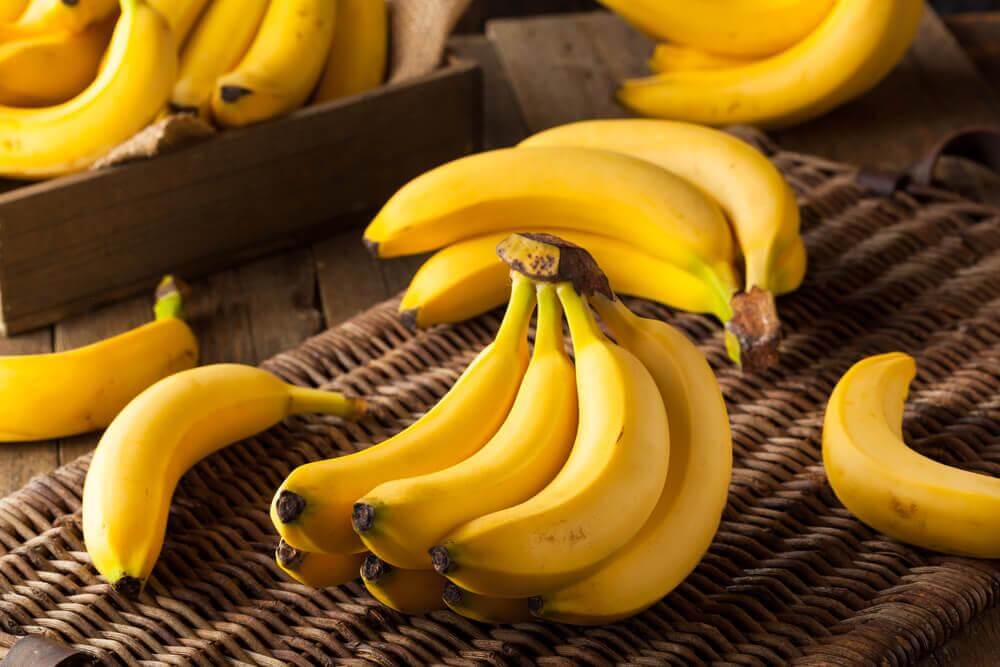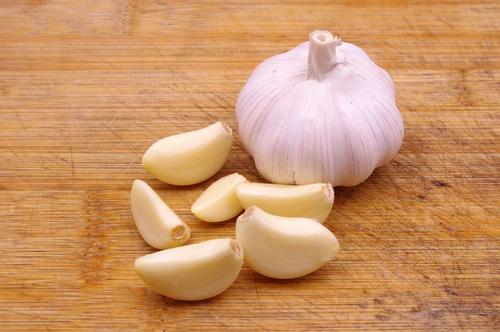10 Foods that Are Good for Bowel Movements


Reviewed and approved by the pharmacist Lourdes Martínez
Constipation occurs when bowel movements are delayed. This happens when a patient hasn’t defecated for more than two or three days. Its most common causes are stress, a low-fiber diet, and a sedentary lifestyle.
Here are some foods to help treat constipation:
Improve Your Bowel Movements with these Healthy Foods
-
Bananas

This fruit’s fiber content eases digestion and promotes healthy bowel movements. Eating a banana every day will regenerate your electrolytes due to its high potassium content. This natural laxative contains fructooligosaccharide, which helps form bacteria in your intestinal tract.
See also:
Flourless, Dairy-free and Nutritious Banana Bread
-
Berries
The antioxidant power of this delicious fruit makes bowel movements easier due to it improving bowel transit. If you want to cleanse your colon in a healthy way, eat any of these kinds of berries: blueberries, strawberries, bilberries, blackberries, cherries, or Goji berries.
-
Plantago

This Indian herb is high in fiber and helps cleanse the intestines and colon. Therefore, it promotes normal bowel movements. Its ability to absorb water stimulates intestinal transit.
Take a look at this article:
11 Foods that Affect Your Digestion and Lead to Constipation
-
Onions
Besides being the quintessential condiment of many foods, onions are a very effective natural laxative. If you eat them raw, it will help activate the secretion of gastric juices and improve the health of intestinal flora.
Onions also have quinine, a component which enhances the liver, bladder, stomach, and pancreas.
-
Garlic

A single garlic clove contains enough allicin and selenium to cleanse the liver naturally, activate enzymes and help eliminate toxins.
Simply add chopped or cooked garlic to any dish to help detoxify your body.
-
Lemons
This fruit is used to cure countless common diseases. It relieves constipation since it’s rich in citric acid, which helps enhance digestion and eliminate years of toxic substances in the colon.
It can be prepared as follows:
- You will need the ½ of a lemon, one cup of warm water, a pinch of salt, and one tablespoon of honey (20g).
- Just squeeze the lemon and mix it with the water.
- Finally, add the salt and honey, then drink immediately.
-
Licorice

Licorice – especially its root extract – has been used for thousands of years as a condiment for some foods. At the same time,it has been used as a laxative in alternative medicine.
Drinking a cup of licorice tea will help ease digestion and expel stools much easier because it enhances kidney function, regulates digestion, and protects the liver.
-
Pear
This delightful and wonderful fruit helps relieve constipation. Its high fiber content helps clean your intestines easily. It also contains pectin, a substance that regulates bowel movements and detoxification.
-
Tomato

The number one ingredient for preparing salads can also help you go to the bathroom regularly. Experts recommend eating it raw – either whole or in juice – before eating anything else. However, there is a recipe that can benefit its effectiveness as a laxative.
- You only need two tomatoes, 1/4 of a liter of water, and one tablespoon of sugar (15 g).
- Start by peeling and cutting the tomatoes into medium size pieces.
- Then, add the sugar and cook with the water for 45 minutes. Stir it frequently.
- Remove from the heat and let it cool for 15 minutes.
- Let the mixture refrigerate overnight and drink it in the morning.
-
Oats
This cereal is famous for its amount of fiber, minerals, healthy carbohydrates, and vitamins. Oats help fight against excess weight and digestive problems such as constipation and it helps lower cholesterol.
- To relieve constipation, mix three tablespoons of oatmeal (30 g) with a glass of orange juice (200 ml) and 250 ml of liquid yogurt or milk.
- Some people also add oatmeal to some smoothies and shakes.
All cited sources were thoroughly reviewed by our team to ensure their quality, reliability, currency, and validity. The bibliography of this article was considered reliable and of academic or scientific accuracy.
- Sabater-Molina, M., Larqué, E., Torrella, F., & Zamora, S. (2009). Dietary fructooligosaccharides and potential benefits on health. Journal of Physiology and Biochemistry. https://doi.org/10.1007/BF03180584
- Kaume, L., Howard, L. R., & Devareddy, L. (2012). The blackberry fruit: A review on its composition and chemistry, metabolism and bioavailability, and health benefits. Journal of Agricultural and Food Chemistry. https://doi.org/10.1021/jf203318p
- Yang, J., Wang, H. P., Zhou, L., & Xu, C. F. (2012). Effect of dietary fiber on constipation: A meta analysis. World Journal of Gastroenterology. https://doi.org/10.3748/wjg.v18.i48.7378
- Ceranic, M., Kecmanovic, D., Pavlov, M., Sepetkovski, A., Kovacevic, P., Stamenkovic, A., … Rankovic, V. (2006). Plantago ovata. Acta Chirurgica Iugoslavica. https://doi.org/10.2298/ACI0601009C
- Borlinghaus, J., Albrecht, F., Gruhlke, M. C. H., Nwachukwu, I. D., & Slusarenko, A. J. (2014). Allicin: Chemistry and biological properties. Molecules. https://doi.org/10.3390/molecules190812591
- Nicastro, H. L., Ross, S. A., & Milner, J. A. (2015). Garlic and onions: Their cancer prevention properties. Cancer Prevention Research. https://doi.org/10.1158/1940-6207.CAPR-14-0172
- Vanisha S. Nambiar and Hema Matela. (2012). Potential Functions of Lemon Grass ( Cymbopogon citratus ) in Health and Disease. International Journal of Pharmaceutical & Biological Archives.
- Nassiri Asl, M., & Hosseinzadeh, H. (2008). Review of pharmacological effects of glycyrrhiza sp. and its bioactive compounds. Phytotherapy Research. https://doi.org/10.1002/ptr.2362
- Mälkki, Y., & Virtanen, E. (2001). Gastrointestinal effects of oat bran and oat gum a review. LWT – Food Science and Technology. https://doi.org/10.1006/fstl.2001.0795
This text is provided for informational purposes only and does not replace consultation with a professional. If in doubt, consult your specialist.








